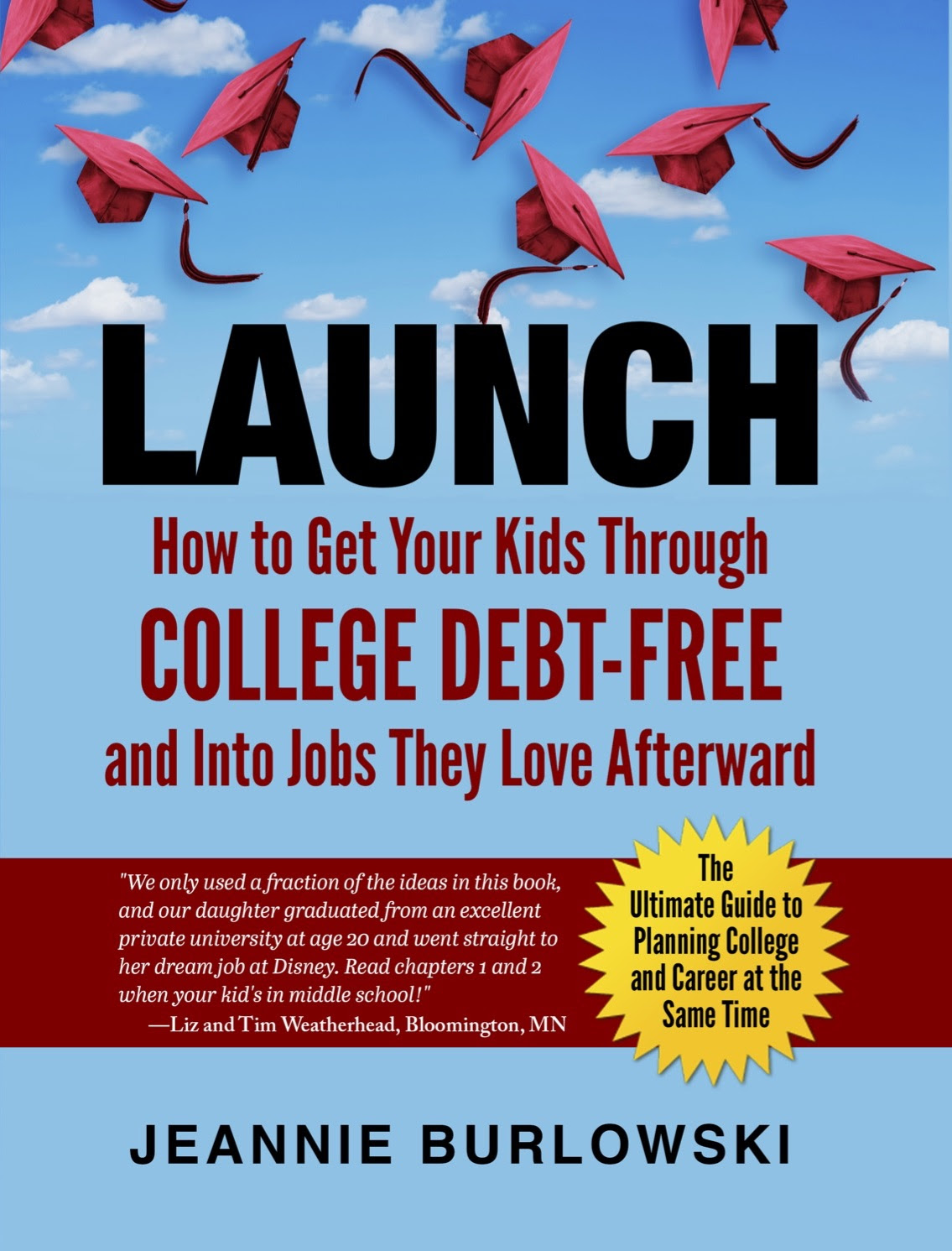This article is part 1 of a 3-part series on what students can do if they already have student loan debt. To see parts 2 and 3 of this series, click here and here.
You recently left college for the working world, and the freedom feels great.
But wait.
Have you left college with any amount of student loan debt?
If you have, it’s important to do 7 things as soon as possible after you stop attending college classes.
(If you’ve been out of college for years and you’ve never done these things, do them now.)
1. List every debt you owe on one clean sheet of paper.
List every institution you owe money to. List your car loan and your credit card companies (if any), as well as each of your student loans.
Underneath each organization’s name, print its street address, customer service phone number, and website. Include the total balance you owe each creditor, the interest rate on each loan, and the login information you need to access your account online.
To find an online list of all your higher-interest, private, “non-guaranteed” loans, get a copy of your credit report. You can do this at no cost at this site: www.AnnualCreditReport.com.
To find an online list of all of your “guaranteed loans” including federal direct loans, use the specific instructions on this website. (It’s helpful and clear.)
2. If you get stuck on this, get help from your parents or your college financial aid office.
Sorting out how much you owe and what your interest rates are (especially on “guaranteed student loans”) can be tricky.
There are three different interest rates for the three different types of government-backed loans (unsubsidized, subsidized, and Grad Plus). To make things worse and even harder to understand, the interest rate on subsidized loans has changed nearly every year. If you need help, ask your parents or your college financial aid office for help. If you’ve already graduated and left campus, don’t worry. Your college’s financial aid office will still help you, and they are available by phone.
3. Contact each of your creditors and find out exactly what your payment arrangements will be.
Whatever you do, don’t sit quietly and wait for your creditors to contact you to let you know that it’s time for you to start paying.
Don’t assume that if a lender doesn’t contact you you’ve somehow “slipped through the cracks” of the system and will never have to pay. Even if a lender doesn’t have your current address and so never contacts you about this money, you still owe it and can get in deep trouble for not paying it.
4. Don’t assume for one second that you can just not pay, and then eventually declare bankruptcy.
You’re actually more likely to get cancer or die in a car crash than to have your student loan debt discharged in bankruptcy court, so plan on being hounded to the grave for this money.
5. Plan to start paying your student loans with your first post-college paycheck.
Whether you actually graduated from college or simply stopped attending without receiving a degree, you are technically granted a six-month grace period before you absolutely HAVE to start making monthly student loan payments.
If you’re employed, though, don’t wait six months to start paying down your student loans.
Since you’ll never be penalized for paying down a student loan early, get a head start by squirreling away a large chunk of each of your post-college paychecks, preferably in an interest-bearing money market savings account through a mutual fund company.
Save all you possibly can in the first six months after you graduate (even if it means working two jobs and living with your parents or your grandma to save rent money). Then, six months after you’ve left college, you can use the money you’ve saved to make a gigantic payment on the principal of your highest-interest loan.
When you do this, you’ll feel excitement and momentum to keep going and pay off every bit of your debt. Remember, your goal is not to learn to live with these onerous loan payments; your goal is to pay off all of your debt as fast as possible so that you can be free.
6. Create an aggressive plan for paying off all your student loans as quickly as possible—perhaps in as little as one to three years.
Read this inspiring article that tells how one young woman did exactly this. It’s possible — if you put your mind to it. There is no better time to do an aggressive debt payoff than before you have a spouse, kids, and a mortgage to think about.
7. Be sure you understand exactly how scary student loan default is.
If you default on a student loan you could be slapped with interest and penalties that nearly double your debt load. Your wages may be garnished. And not only that, a student loan default on your record can mean that in the future you can’t rent an apartment, get approved for a home mortgage, or even get a decent job.
If you have questions about your student loans and you wonder who can help, the article I’ve written here will give you all the best resources I know of.
This clear article provides specific details on the consequences of student loan default that every student borrower needs to know.
<BONUS #8.> Enter your student loan payment due dates in your personal calendar.
Be very sure you’re meeting at least your minimum student loan payment obligations every single month.
Remember, you’re keeping a very dangerous wolf from your door.
“What else can I do to protect myself and my family?”
Listen closely to Suze Orman’s advice on this subject. In this video, Suze advises a young couple with private student loans to take out a term life insurance policy that will cost just $30 per month or less. (A tiny amount considering the protection it provides.) If the student dies with this term life insurance policy in place, money will be immediately available to pay off those student loans and leave no debt burden for loved ones left behind.
A qualified financial advisor can help you set this up. (Be certain that any financial advisor you work with is a fiduciary.)
This article is part 1 of a 3-part series. To see parts 2 and 3 of this series, click here and here.
Help keep your younger siblings out of student loan debt—suggest that your parents get their copy of my book:
Important—> It’s a reference book, so nobody reads the whole thing cover to cover. Pick out what you need to read in it using the fast-paced, 10-minute video instructions here.
You can see hundreds of reviews of this book on Amazon by going to:
Read just one chapter of LAUNCH every 1–3 months while your child’s in middle school and high school, and you’ll know every viable strategy for debt-free college at exactly the right time to implement it.
And if your child’s already well past middle school? That’s OK; you can run to catch up. But the process of getting your kids through college debt-free goes more smoothly the earlier you start it—especially if you’re not planning to save up any money to pay for college.
Let's you and I walk together toward the goal of debt-free college for your kids.
We can accomplish this no matter your current income level—even if your kids never get a single scholarship.
Your first step is getting regularly scheduled, free helpful articles from me—right in your email inbox. Quick, sign up here.
Do you have very specific questions for me about debt-free college and career for your kids?
My TRIBE Members get the most direct access to me—while feeling good that the pennies per day they spend on the TRIBE help me bring debt-free college strategy to families who could never afford to pay for it. Join my TRIBE Membership waiting list here.
Who is Jeannie Burlowski?
Jeannie is a full-time academic strategist, podcast host, and sought-after speaker for students ages 12–26, their parents, and the professionals who serve them. Her writing, speaking, and podcasting help parents set their kids up to graduate college debt-free, ready to jump directly into careers they excel at and love. Her work has been featured in publications such as The Huffington Post, USA Today, Parents Magazine, and US News & World Report, as well as on CBS News.
Jeannie also helps students apply to law, medical, business, and grad school at her website GetIntoMedSchool.com. You can follow her on Bluesky @jburlowski.bsky.social.
No part of this article was written using AI.
This article was updated on April 9th, 2025.



